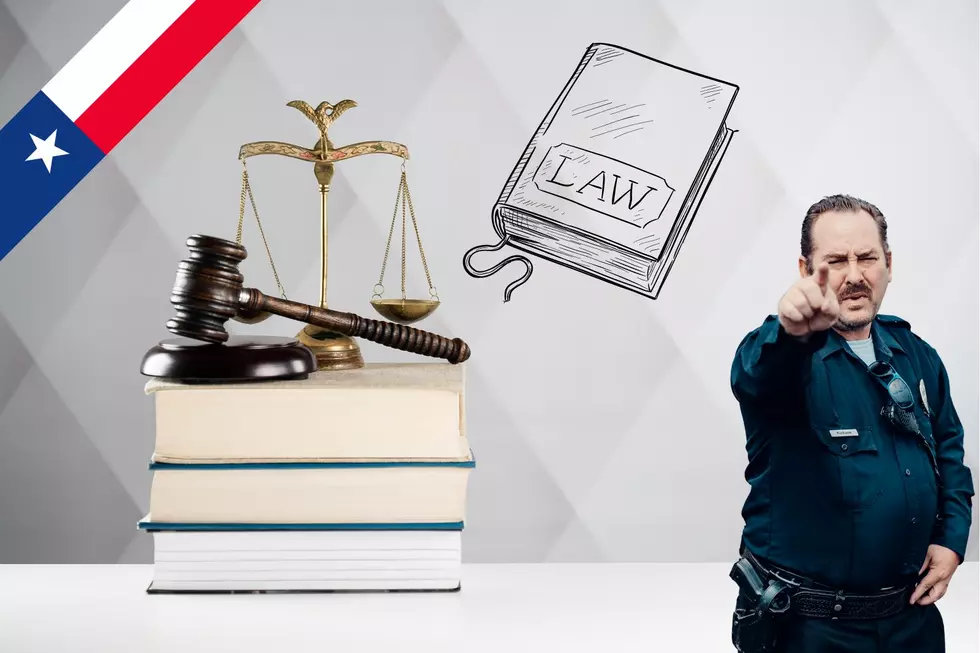
Texans Not Happy with Latest Flex from Texas Department of Public Safety
Being a law enforcement officer is tough. We've seen that with the huge microscope that everyone wants to put them under for doing nothing more than their job enforcing the laws your elected officials have put on the books. Yes, there are some bad apples in the basket but that doesn't fully reflect the job law enforcement does on a daily basis. You couldn't do it and neither could I. But sometimes, there are moments that we all can raise an eyebrow towards.

Personal "Bad" Encounter with Law Enforcement
I had an instance roughly 10 years ago where I was pulled over by a highway patrol officer on Highway 31 heading toward Malakoff. The speed limit is 70 miles per hour which I had my cruise control set to that speed. The officer said that I was going 75 miles per hour which is why he pulled me over. I found it odd that he asked me to step out of my vehicle and go to the rear. I also found it odd that he stood next to my vehicle and was looking inside, but not leaned into, the driver side window that was rolled down.
The officer did his usual license checks and let me off with a warning. The whole situation was very odd. My only guess as to why I was pulled over was maybe they were looking for someone in a vehicle that looked similar to mine. That is the only time that I recall an unusual interaction with a law enforcement officer. I'm lucky because I'm sure you, reading this right now, or someone you know has had more, or a lot more, bad interactions with law enforcement.
Weird Flex from DPS
That's why this latest flex by the Texas Department of Public Safety (DPS) caused me to raise an eyebrow and had to do some research into how they can do this legally. On the Texas Department of Public Safety - Southeast Texas Region Facebook page, they talked about a new vehicle that's been added to their fleet, a 1,080 horsepower Dodge Challenger SRT Hellcat.
While many in the comments section (which some are very funny) were basically calling this theft by state, it is perfectly legal for this to be done. The law started in Texas in 1989 which can be found in chapter 59 of the Texas Code of Criminal Procedure. The reasoning behind forfeiture is below:
...(forfeiture) removes the tools of crime from criminal organizations, deprives wrongdoers of the proceeds of their crimes, recovers property that may be used to compensate victims, and deters crime.
How is possible for the state to do this?
Whether its cash or property, the state can confiscate those assets and pass them on to law enforcement or even sell those items and give the proceeds to the victims family. In this case, the asset went to law enforcement.
There are three main features to a forfeiture hearing:
- Its not a criminal trial so the state does not have to provide an attorney. The defendant will have to hire one which in most cases that defendant can't afford one.
- The prosecutor doesn't have to prove beyond a reasonable doubt, only that the property be forfeited by "a preponderance of the evidence."
- A criminal conviction IS NOT needed to forfeit the property.
So basically, there is very little chance of getting your property back.
Its Not Always a Lost Fight
A case against Tenaha police several years ago said that police officers there would stop vehicles and ask for their cash to avoid facing criminal charges. The defendants won their class action lawsuit and now the Tenaha police are required to record every stop, provide the true reason for the stop and advise the person pulled over that they can refuse a search of their vehicle.
Despite This, Our Officers Perform a Thankless Job
Look, its easy to armchair quarterback what law enforcement does. What we don't know, or see all the time, are those dangerous moments that they have to put themselves in front of. Our officers do more good for us than the click bait we're seeing on all of the news media.
11 Myths Not Texans Believe are True about Texas
13 Things to Say or Do That Will Get Your Texas Card Revoked
Reality Show that Best Matches an East Texas City
More From KKTX FM









